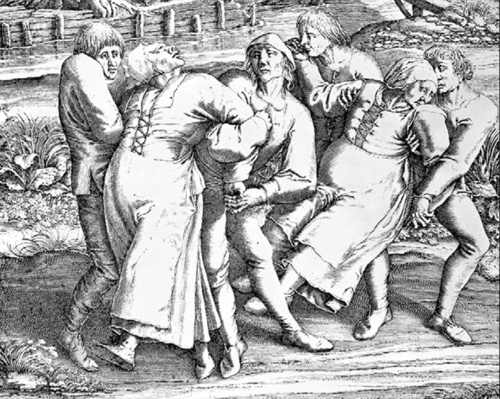Buttons. Everyone uses them in their daily lives to help perform tasks. They keep our clothes held together, turn on our phones, and change channels on our televisions. Often overlooked, these tools can make for interesting stories.
On this episode of RadioLab, three very different "button" themed stories are presented.
ACT ONE - 00:00 - 07:19
In the first tale, reporter Latif Nasser decides to go to the
Elevator History Museum in New York City, where he meets Patrick Carr, curator of the museum. Carr has a secret he can't wait to share with Nasser: 80% of "close door" buttons on elevators are not hooked up. This is because elevators are very smart, and know the traffic of incoming passengers at various times of day.
"All you're doing is screwing up the elevator's timing by touching that thing." - Patrick Carr
This story shows that although buttons make life easier in some situations, in others they are useless. When I push the "close door" button on elevators, I expect the machine to do what I want. I'm sure this button works in areas with low traffic, but in office buildings where it is used frequently, users are powerless. All the button does is give people a meaningless amount of power.
ACT TWO - 07:20 - 16:10
This is not a story about literal buttons, but of founding father
Button Gwinnett. Button was a Georgia politician and frequent debtor, who was a signer of the Declaration of Independence in 1776. The following year, he got into a dual with a rival and died. With his signature being right below Hancock's, we have seen his name many times without realizing it.
In 1820 when the last of the founding fathers were dying, collecting these signatures became popular. Button's was the rarest, with 51 known examples in the world. His signature
sold recently for $722,500. It is worth more than Ben Franklin's and maybe Shakespeare's.
"This is the autographic equivalent of a really expensive diamond" - Robert Krulwich
It's really interesting how a man who with his life was known for racking up debt and getting into fights can have such a valuable signature. He is unknown to most of the world, yet his name is worth more than some of the most famous people in history. Sometimes items can be arbitrarily valuable.
ACT THREE - 16:11 - 27:32
This last story is of the most high stakes button ever. It is portrayed in movies as the big red button on the President's desk that can start a nuclear war. Only there is one problem: this button doesn't exist.
The phrase "the President has his finger on the button" has been around longer than nuclear weapons. Existing conceptions from literature about scientists ending the world using a single button transferred to the powerful image of the President.
For starters, why would anyone want a button like that on their desk? What if it were bumped? The button is a symbol of just how much power the President has when it comes to starting wars. How could we deter the President from believing he has the almighty power to destroy entire ways of life?
An academic named Roger Fisher believed he had the answer. He proposed that a White House aide have embedded in his heart the launch codes for nuclear weapons, and carry around a briefcase containing a knife. If the President wishes to destroy an entire city and all of its inhabitants, he would first need to kill the aide to get the launch code. This sounds horrific, but does this idea have validity? Is this something more than a metaphor, or would it get in the way of White House business?








.png)



